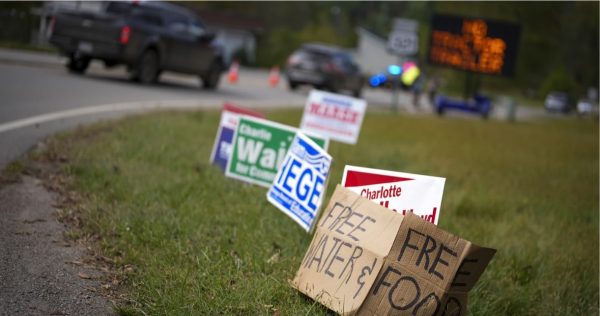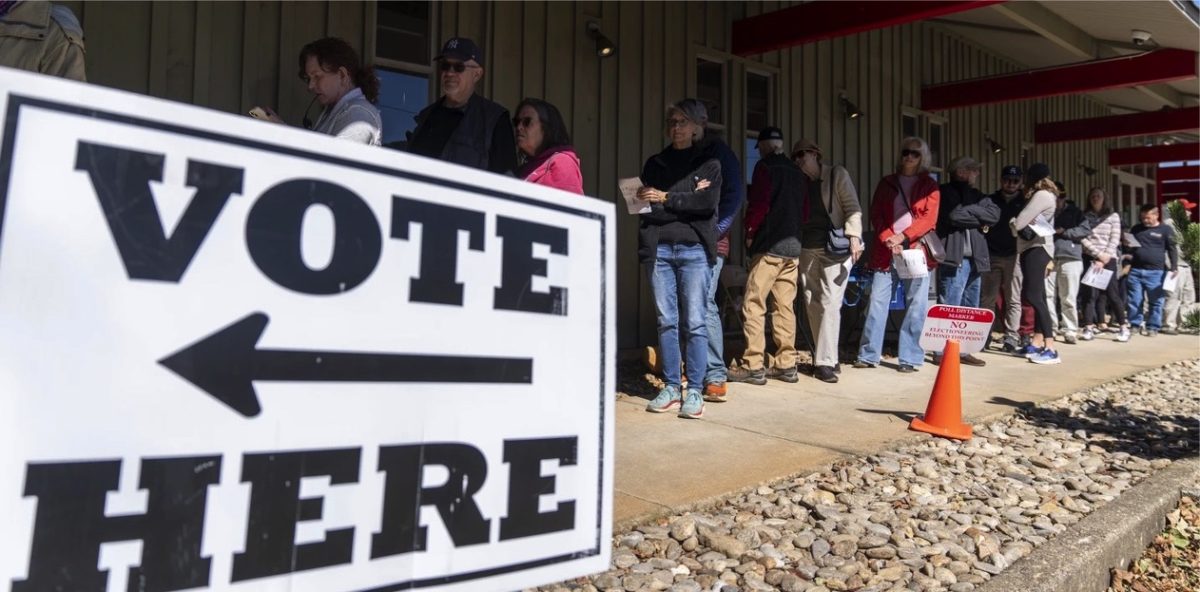On Oct. 7, The North Carolina State Board of Elections (NCSBE) convened to hold a remote meeting to address the emergency measures required for conducting voting in the affected counties in western North Carolina. This comes in the aftermath of Hurricane Helene’s impact on the western part of the state.
“[We] are working to ensure voters affected by the storm can still cast their ballot in the 2024 general election,” NCSBE said in a press release on Monday, Sept. 30.
As of Oct. 5, a total of 115 people have been confirmed dead as a result of the hurricane in North Carolina with searches still ongoing for hundreds of missing people in the western part of the Tarheel State. With an election a month away, these unforeseen circumstances caught the attention of the NCSBE.
As the state’s agency that is responsible for overseeing the elections process, the board adopted a resolution that grants the 13 counties most affected by the hurricane (Ashe, Avery, Buncombe, Haywood, Henderson, Madison, McDowell, Mitchell, Polk, Rutherford, Transylvania, Watauga and Yancey) with the following modifications.
County boards are authorized to modify their early voting plans and election day precinct voting sites by bipartisan majority vote.
Voters are able to request and receive an absentee ballot in person at their county board of elections office until the day before the election, Nov. 4. Completed absentee ballots can be dropped off at Election Day polling places by 7:30 p.m. or delivered by a relative or legal guardian to another county board or the State Board of Elections by 7:30 p.m.
County boards have the authority to appoint election officials registered in other North Carolina counties, appoint emergency Election Day assistants and reassign poll workers for sufficient expertise at each voting site. They can also schedule Multi-Partisan Assistance Teams to help with absentee voting at disaster shelters and other relief locations.
There is ongoing coordination between the NCSBE and the North Carolina Division of Emergency Management, to provide election-related aid to disaster counties, including temporary voting facilities, generators, temporary restrooms and other needs.
NCSBE stated that they have contacted affected election officials in the state to ensure that they can assess the damages to voting facilities as well as the potential effects to absentee or in-person voting.
“When disasters strike elections, we use this mantra: ‘We do not stop an election; we figure out how to proceed,” Karen Brinson Bell, the executive director of the NCSBE, said.

The NCSBE devised an information hub, NCSBE.gov/Helene, that will be updated regularly based on county board office closures, tips for voters affected by the storm and basic voting information. They will also provide information on their social media.
Absentee voting began in the Tarheel state for everyone on Sept. 24, with in-person early voting beginning on Oct. 17. However, absentee voting has encountered a hurdle as the U.S. Post Office has reported that some counties have suspended mail delivery at dozens of post offices in Western North Carolina. The NCSBE has stated guidelines for residents of western North Carolina who requested an absentee ballot, explaining that residents do not have to vote that way, instead, they can vote in person during early voting or on Election Day.
Additionally, if the voter still chooses to vote absentee and is in a different location than where they registered originally, they can request an absentee ballot and have it sent to their temporary address. If they already requested an absentee ballot the voter should contact their county board of elections to have the original ballot spoiled and have a new one sent to their temporary location.
North Carolina State Law requires voters to present an acceptable form of photo ID when voting in person and include a photocopy of their photo ID with their mail-in ballot. Due to Hurricane Helene, the board has advised voters in the 25 affected counties under a disaster declaration that they can fill out a Photo ID Exception Form. This form will allow them to explain why they may not be able to show a photo ID to vote in person or by mail, using the “natural disaster” exception.
Governor Roy Cooper of North Carolina stated in a press release on Tuesday, Oct. 1 that approximately 370,000 customers still remain without power, noting how this number has drastically decreased from the peak of 1 million.
The NCSBE has implemented additional measures to address these concerns and ensure voting offices are accessible. They are providing emergency kits, known as “election offices in a box,” to counties without power. This will enable workers to continue preparing for the election by registering voters and processing absentee ballot requests.
As North Carolina continues to recover from the devastation left by Hurricane Helene, the resilience of both its people and institutions is being put to the test. While the challenges ahead are immense, the determination to protect the democratic process is clear.










